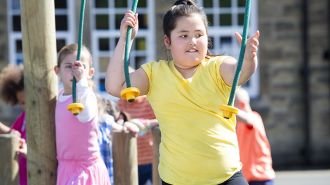
- Our studies
- Our research
- Publications and resources
- Data access and training
- About
- News
- Events
- Get in touch
- Join our mailing list

Welcome to our news and blogs section. Here you’ll find the latest developments and insights from across our longitudinal studies.
Data from the 1970 British Cohort Study (BCS70) Age 51 Sweep are now available to download from the UK Data Service.

Children in homes where both parents are employed are more likely to be overweight compared to those from families where mothers stay at home.

These FAQs provide additional information on the research covered in our news story ‘Children’s BMI tends to be higher in homes where both parents work, new study finds’

Young people today are more likely to be depressed and to self-harm than they were 10 years ago, but antisocial behaviour and substance use – often thought to go hand-in-hand with mental ill-health – are on the decline.

Overweight and obese children who are physically inactive are more likely to have poor wellbeing than their more active peers who are a similar weight, according to a new study.

Our initial findings from the Millennium Cohort Study Age 14 Sweep cover a range of themes, from mental health to levels of obesity and risky behaviours.

To coincide with the Millennium Cohort Study time use diary and accelerometer data release, CLS Survey Manager, Dr Emily Gilbert, discusses how the use of new technology has enabled us to gain new insights into the lives of the millennial generation.
CLOSER’S 2017 conference on inequalities was an opportunity to share ideas and innovations with longitudinal researchers from across disciplines and sectors, both from the UK and abroad.

The Next Steps Age 25 Sweep has provided valuable insights into the lives of young adults today.

People who exercise regularly are more likely to be satisfied with their lives, according to a new study.

Eleven-year-olds who have tried cigarettes or alcohol show signs of switching off from school and are more likely to get into trouble, according to findings from the Millennium Cohort Study (MCS).

Children who perform well at school at age 11 are more likely to use cannabis during their late teenage years, compared to those who show less academic promise.

Among women with young children, those in low-income households are more likely to exceed recommended levels on alcohol, according to a new study.
Ryan Bradshaw
Senior Communications Officer
Phone: 020 7612 6516
Email: r.bradshaw@ucl.ac.uk